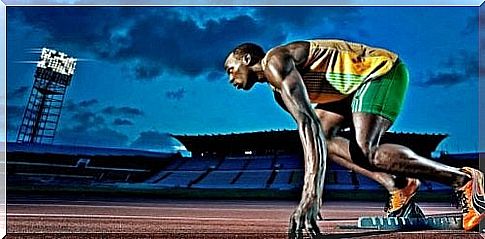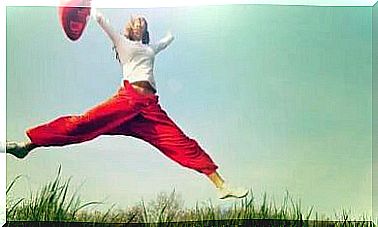Psychological Factors And Sports Performance

High-performing athletes claim that 90% of their success is due to mental training and ability. In professional sports, there are no huge differences between different athletes in terms of potential, training and physical ability. Instead, it is psychological factors that are crucial to the results.
In recent years , we have seen an increased interest in the psychological aspects of sport. This increased interest has led psychologists and professional athletes to ask the following question: What psychological factors are most important for athletic performance?
It is obvious that psychological factors affect athletes’ performance. This applies to elite athletes as well as to ordinary leisure exercisers. Today we have evidence to support this idea. People who play a physical sport, whether they are professionals or amateurs, can benefit from developing certain psychological tools. These tools can help them increase their ability and athletic performance.

What psychological factors improve athletic performance?
We all know that regular exercise clearly has positive health effects. In addition, there are repeated studies that show that exercise is good for our mental health by contributing to better ability to concentrate, ability to work in groups and self-esteem.
The psychological factors that play the biggest role in sports and training results are: self-confidence, motivation, emotional control and concentration.
- Motivation : This is important no matter in which area you are trying to achieve optimal performance. And it is especially important in sports. Think of the athletes who are constantly tossed between ups and downs, victories and losses. In their case, it is usually the inner motivation and love of what they are doing that helps them recover from a bad fit, a terrible throw or a result that is clearly below expectations.
- Concentration : Athletes must also be able to concentrate strongly. All actions, even the simplest and most natural, require concentration. A poorly performed movement can result in loss or injury. It can nullify months of preparation. Therefore, it is often the case that even a moderately trained athlete does not allow himself to be distracted.
- Emotional control : Exercises in mental training, which help you control your emotions and your doubts, can mean the difference between success and failure. When poor emotional control affects an athlete’s performance, it is usually because he lets his emotions interfere with concentration.
- Self-confidence : Finally, the confidence you have that you can fulfill a task is an important prerequisite for being able to win.

Mental techniques to improve athletic performance
Being a professional athlete involves a high degree of emotional commitment. Athletes must first identify and analyze their strengths and weaknesses. Then they can use customized techniques to improve performance and confidence. If the technicians are not individualized, they can counteract their purpose.
Examples of techniques that athletes use most to increase their performance are:
- Attention control : both internal and external attention. Inner attention is when the athlete focuses on things that happen in his own body (thoughts, inner dialogue, emotions and movements). External attention is when the athlete focuses on things outside his own body.
- Objectives : this helps the athlete to get an overall picture of the work required. It also allows the person to visualize what he or she needs to do to achieve his or her ultimate goals.
- Self-instructions : these are messages or short affirmations aimed at ourselves to help us with motivation or concentration. It is important to use rational, positive, logical and realistic affirmations.
- Relaxation : a relaxation technique is any form of method, procedure or activity that helps reduce the physical and / or mental tension. The purpose is to reduce stress and anxiety and replace them with calm.
- Mental representation : mental representations are symbolic ways of reproducing reality. Visualization is extremely effective whether you are an athlete or not.
Finally, it is important to remember that sports (especially at a high level) involve a lot of pain and suffering. And it’s not just about the pain that the training itself causes, but also all the indirect effects.
Therefore, sports are an excellent way to develop resilience. Many of the psychological techniques that athletes use are those that we can also use in other situations that are characterized by strong competition and high demands.









